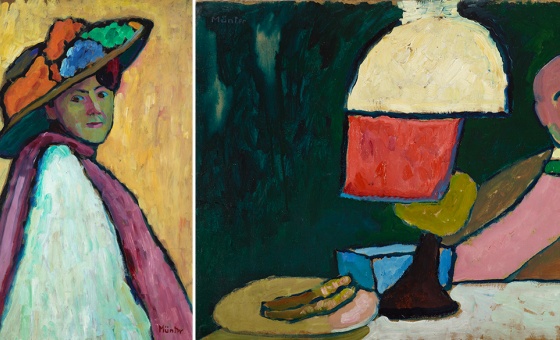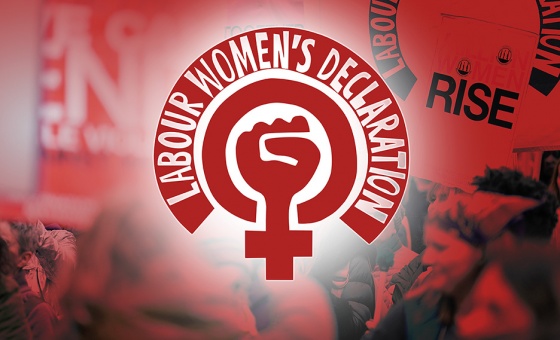This is the last article you can read this month
You can read more article this month
You can read more articles this month
Sorry your limit is up for this month
Reset on:
Please help support the Morning Star by subscribing here
SO, David “Dodgy Dave” Cameron, ex-MP for Witney and star of a wonderful cover version of Pulp’s Common People (see bit.ly/CommonDave), is back — this time as “Lord Cameron of Chipping Norton.”
In 1851, the day after a French coup d’etat by which Louis Napoleon Bonaparte, president of the Second Republic (and Napoleon Bonaparte's nephew), proclaimed himself emperor as Napoleon III, Engels declared in a letter to Marx: “It really seems as though old Hegel, in the guise of the World Spirit, were directing history from the grave and, with the greatest conscientiousness, causing everything to be re-enacted twice over, once as grand tragedy and the second time as rotten farce.”
Marx followed by writing an account of the coup, his opening sentence also citing Hegel’s declaration that historic events and personages appear twice, continuing that Hegel forgot to add: “The first time as tragedy, the second as farce.”
Cameron’s transfiguration is certainly farcical. It’s also an affront to the people of Chipping Norton. And at the supercentenary anniversary of the legendary Chipping Norton strike of 1913-14 — it’s an insult to the memory of Chippy’s real heroes.
The original owner of Chippy’s tweed mill, William Bliss, was a paternalistic employer known for “good works” in the town. In 1873 he had defended his workers against accusations of besieging the Chipping Norton police station, where 16 women were being held for picketing a field in nearby Ascott-Under-Wychwood after the farmer imported scabs to replace the workers he had fired for joining the recently formed branch of the Agricultural Workers Union (AWU).
The “Ascott martyrs” were subsequently imprisoned with hard labour under the 1871 Criminal Law Amendment Act, a forerunner of Thatcher’s anti-union laws.
However, a fire at the mill and a recession in the woollen trade had led to bankruptcy for the Bliss family and a takeover by the Birmingham Metropolitan Bank. The bank installed Arthur Dunstan, the mill’s 29-year-old general manager as its managing director.
Focused solely on profit, Dunstan became despised by the workers, not just for his refusal to increase wages to those paid elsewhere in the industry, but for polluting the local stream with dyes, killing off its fish.
This was a time of growing workplace activism, not just in industrial towns but also in the countryside. In November 1913 a branch of the AWU was formed at the mill and by mid-December more than 230 employees had joined. In a town with a population of under 4,000 comprising fewer than 1,000 households, this was no mean achievement.
In response, Dunstan sacked three prominent union organisers, declaring that any employee joining the union would be dismissed.
In their defence two-thirds of the workforce, 125 women and 112 men, came out on strike just a week before Christmas.
The result was that Dunstan agreed to a union — but a “company” union and not to reinstate the sacked men. On January 5 1914 many strikers reported to the mill for work. They were told that only some of them would be re-engaged.
The response from the 237 strikers was a united “all or none.”
A strike committee met in the Fox Hotel where a soup kitchen provided food for the strikers’ families. Picket lines were established at the mill and delegations of strikers were sent to London and Birmingham to seek support.
Dunstan, with the support of the town council, in turn, drafted in 40 extra police. In the inevitable conflicts that followed, several strikers were fined or imprisoned.
Most notable of these was 50-year-old Annie Cooper who had worked at the mill for more than 20 years. Convicted of assault on a strike-breaker, she refused to pay the fine and was sentenced to 14 days in prison.
On her release, she was feted by jubilant supporters, paraded around the town with her father and husband in a wagon accompanied by a brass band and presented with a silver teapot by Julia Varley, the full-time organiser for the AWU who had herself started work at the age of 13 as a sweeper in a Bradford woollen mill.
The Bliss mill strike became a national cause celebre and received wide support. The bishop of Oxford sent a letter and a donation supporting the right of workers “to combine freely in trade unions with the view to collective bargaining.”
Fabian writer GDH Cole also urged support, arguing that rural wages needed to be increased if industrial struggles in Oxford were not to be undermined.
Oxford students mobilised. One action included women’s suffrage campaigners on motorbikes encircling the Chippy police station where strikers were being held.
In March an intransigent management offered to re-engage just 100 strikers. This was rejected in a secret ballot by a vote of 179 to one, but, by the end of May although only 35 strikers had returned to work it was clear that the struggle was over.
Poverty and a hard winter meant that some strikers sought employment elsewhere, many leaving the town altogether, and jingoism in the run-up to the first world war meant that popular support fell off and town opinion hardened against the strikers. Despite their solidarity and the support they received, the strikers were ultimately forced to concede defeat.
One of their leaders, Jack Hieatt, who had been among those sacked the previous November, was drummed out of town. His father-in-law George Sandels was re-employed by the mill, though not until after the outbreak of World War I and, like many others on piece-work, only to lose his right arm in unprotected machinery. His compensation a Christmas gift from the wife of the local Tory MP, Cameron’s predecessor, was a single glove for his remaining hand.
Others enlisted, many to die fighting for “King and country.”
While the collapse of the strike showed, as so often, the disproportionate power of capital over labour, it also demonstrated the resilience, initiative and solidarity of working people in the struggle for dignity, self-respect, union recognition and just reward.
Many of those who took part in the strike became political activists after the war. Hieatt became a full-time organiser for the AWU. He and Julia Varley, the first female member of the union’s staff and ever-present on the Bliss mill picket line, were later awarded OBEs for their contribution to trade union organisation.
A Chipping Norton branch of the Labour Party was formed in 1920 with Hieatt’s comrades Thomas Winnett as chairman and Arthur Woodward as secretary.
The history of the strike and the strikers provides a significant focus of Chipping Norton’s Local History Society, whose wonderful Chippy Museum ensures that its legacy lives on, not least in the collective identity of those whose forbears were involved with the strike not necessarily as strikers.
Today, Chippy residents and their descendants are proud to be associated with a “Chipping Norton set” with rather different values from those of Cameron and his cronies. Our forebears, remembered on the war memorial in Chipping Norton, on the Menin Gate in Ypres and various cemeteries in Europe, do not deserve this insult and neither do we.
Soiled goods, indeed. From the “gift” of a single glove to a worker who lost his arm in the mill, to the poisoned chalice of an unelected lord appointed to an unaccountable peerage by an unelected Prime Minister, the good people of Chippy really don’t deserve this insult. Cameron and the Chippy strikers have only one thing in common; a loyalty to their class — but to very different classes.
As the saying goes, you can’t polish a turd. If Cameron is to be a Lord, it should be “Lord Greensill.”
This piece was collectively edited by the descendants of some of the Chipping Norton strikers. Mike Richardson’s history of the 1913-14 strike can be obtained from the Bristol Radical History Group at www.brh.org.uk.











